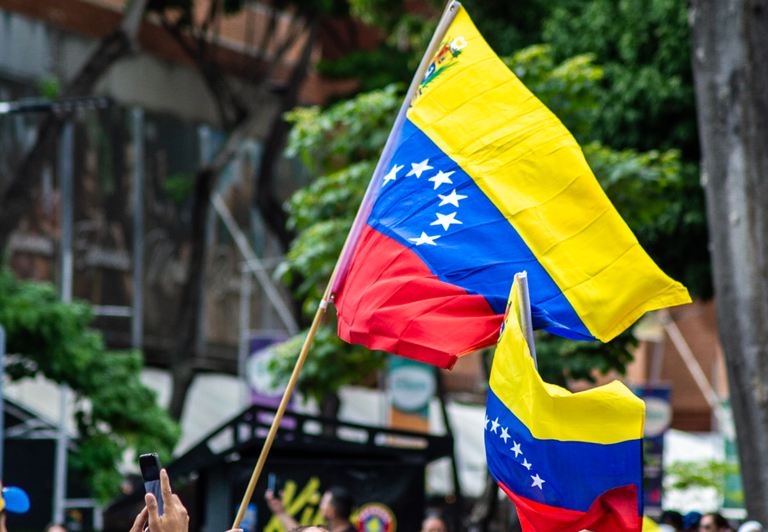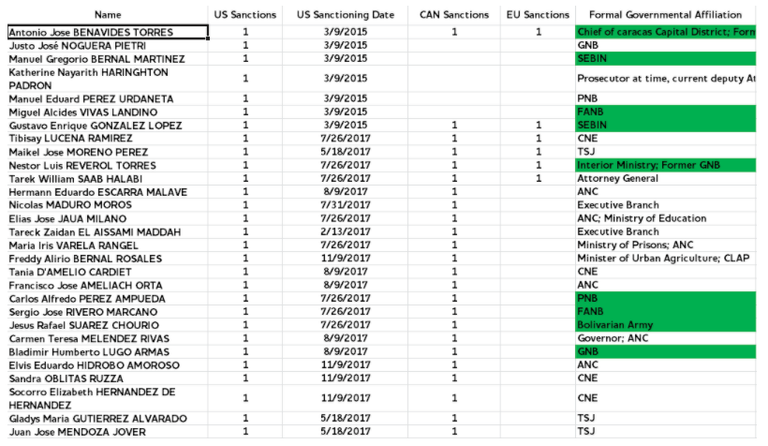
The United States finally started rolling out new sanctions against the chavista regime and its collaborators, they've issued 16 thus far but are planning on unveiling over 2,000 more in coming weeks, directed not only at the regime's top hierarchs (who have been sanctioned for years) but at their associates, figureheads and relatives.
I understand why sanctions are controversial among the general public, the American government isn't precisely trustworthy and its motivations to establish restrictions on other nations are often unclear, which is why I think it's important to make certain clarifications about this policy, its impact and scope. First, a bit of history.
Sanctions began being imposed on the Venezuelan government by the Obama administration in 2015, following the dire reports of human rights violations committed during the 2014 protests. They were expanded between 2017 and 2019 by the Trump administration and this recent batch is a further expansion, signaling a bipartisan support for this measure. The European Union, Canada, Switzerland, Mexico and all Latin American nations have also imposed their own sanctions since then, however, there's currently no plan by any other government of institution to expand the program.
The larger concern regarding this is the potential effect that sanctions can have on a country's economy, which might hurt people instead of helping them, as it did with Cuba and other nations in the past decades. The regime and its allies picked up this line and created a whole anti-imperialist propaganda campaign that many citizens, especially in other countries, have adopted as a rallying cry for social justice and sovereignty. As it often happens, propaganda is only loosely based on the facts and the vast majority of critics aren't really aware of what these sanctions entail.
First off, sanctions don't affect the country's dealings with other nations unless the companies and institutions involved in these dealings are based on or hold assets in the countries issuing them, particularly the U.S.. Also, the only public assets under sanctions are Petróleos de Venezuela (PDVSA), the country's national oil company, as well as the mining and metallurgic industries, which were already in tatters by the time Maduro took power in 2013; most of the sanctions have been imposed on individuals and their shady companies, affecting only their ability to travel to the issuing nations, cancelling their visas and freezing their assets, on the premise that these people have been directly or indirectly involved in the commission of crimes against humanity, fraud, embezzlement, money laundering, drug and human trafficking. These accusations are completely true, the individuals mentioned in the lists (summarized in this article) are indeed responsible for these and other crimes. Sanctions have severely hindered, though not entirely impeded, their ability to operate abroad, as well as crippling their domestic apparatus of repression and control. As a consequence, many of them have been forced to use their ill-gotten fortunes on Venezuela; their capacity for oppression has also declined steeply, causing internal rifts and debilitating the regime's responses, which has had a significant positive impact on the country's crisis and quality of life. Since 2020, we've been experiencing a resurgence due in no small measure to this policy.

One thing that's essential for people elsewhere to understand is that this hasn't been just a bad government, it's not even a genuine government but actually a camarilla of gangsters, a drug cartel. They have no ideology and they don't give a damn about politics, they've never cared about due process or the rule of law. As I said in a recent post, they're faithless, their only motivation and deity is money, so anything that attacks their finances is a serious hit, and we Venezuelans welcome it.
So, if you feel tempted to criticize the imposition of sanctions, make sure you research well and don't believe what you're being told about them on the press and much less by other ideologically motivated pundits. If you don't know how Venezuela's doing, how it's been affected by the regime and by the international reactions to them, ask Venezuelans of all walks of life, I'm sure you all know at least one Venezuelan national. Don't jump to conclusions, you're not championing social justice or being of any help to us or other oppressed peoples in the world by judging without knowledge.